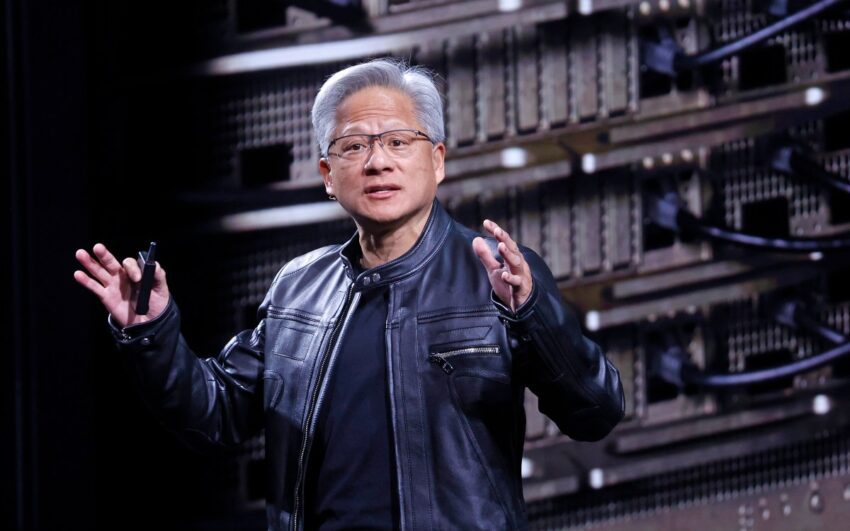
china tells its tech companies they can China has officially imposed a ban on its tech companies from purchasing AI chips manufactured by Nvidia, marking a significant escalation in its ongoing efforts to control the technology landscape within its borders.
china tells its tech companies they can
Background of the Ban
This move follows a series of warnings issued by the Chinese government in August, where it strongly discouraged local tech companies from acquiring Nvidia’s AI chips. The initial advisory was part of a broader strategy to bolster domestic semiconductor capabilities and reduce reliance on foreign technology, particularly from the United States.
Nvidia, a leading player in the AI chip market, has seen its products become increasingly critical for various applications, including machine learning, data processing, and artificial intelligence. The company’s chips are widely used in data centers and by tech firms globally. However, the Chinese government’s concerns about national security and technological independence have prompted a more aggressive stance against foreign technology acquisitions.
Reasons Behind the Ban
National Security Concerns
The primary rationale behind China’s ban on Nvidia chips is rooted in national security. The Chinese government has been increasingly wary of the potential implications of foreign technology on its national interests. There is a fear that advanced AI capabilities could be utilized for surveillance or military purposes, leading to a potential imbalance in power dynamics.
In recent years, the U.S. has implemented various restrictions on technology exports to China, particularly in the semiconductor sector. This has fueled a sense of urgency within China to develop its own capabilities and lessen dependency on foreign suppliers. The ban on Nvidia chips can be seen as a direct response to these geopolitical tensions.
Encouraging Domestic Innovation
Another significant factor driving the ban is China’s ambition to foster domestic innovation in the semiconductor industry. The Chinese government has been investing heavily in its semiconductor sector, aiming to create a self-sufficient ecosystem that can compete with global leaders. By restricting access to foreign technology, the government hopes to encourage local companies to develop their own AI chips and related technologies.
This strategy aligns with China’s broader economic goals, which include achieving technological self-sufficiency and reducing reliance on imports. The ban on Nvidia chips is part of a larger initiative to promote homegrown technology solutions and stimulate innovation within the country.
Implications for the Tech Industry
Impact on Chinese Tech Companies
The ban on Nvidia chips will have immediate repercussions for Chinese tech companies that rely on these advanced processors for their operations. Companies engaged in AI research, cloud computing, and data analytics may face significant challenges in sourcing alternative chip solutions. This could lead to delays in product development and hinder the growth of AI initiatives within the country.
Moreover, the ban may compel Chinese firms to accelerate their research and development efforts to create competitive alternatives to Nvidia’s offerings. This could result in increased investment in domestic semiconductor manufacturing and innovation, but it may take years for local companies to catch up to the technological advancements achieved by Nvidia.
Global Semiconductor Market Dynamics
The ban is likely to have ripple effects on the global semiconductor market as well. Nvidia has established itself as a dominant player in the AI chip sector, and its products are integral to many tech companies worldwide. With China’s ban, there may be a shift in demand for AI chips, potentially benefiting other manufacturers who can fill the void left by Nvidia.
Additionally, this development could intensify the ongoing tech rivalry between the U.S. and China. As both nations seek to assert their dominance in the semiconductor industry, the competition may lead to further restrictions and regulations, impacting global supply chains and innovation.
Stakeholder Reactions
Chinese Government’s Perspective
The Chinese government has framed the ban as a necessary step to safeguard national security and promote self-reliance in technology. Officials have emphasized the importance of developing indigenous capabilities and reducing dependency on foreign technology, particularly in critical sectors like AI and semiconductors.
In official statements, the government has expressed confidence in the ability of Chinese companies to innovate and develop competitive alternatives to foreign products. This sentiment reflects a broader narrative of resilience and determination in the face of external pressures.
Industry Responses
Responses from the tech industry have been mixed. Some companies have expressed concern about the immediate impact of the ban on their operations, particularly those heavily reliant on Nvidia chips. Executives from these firms have indicated that they may need to pivot their strategies and explore partnerships with domestic chip manufacturers.
Conversely, some industry leaders have welcomed the ban as an opportunity to invest in local innovation. There is a growing sentiment among certain sectors of the Chinese tech community that the ban could serve as a catalyst for the development of homegrown technologies, ultimately strengthening the domestic semiconductor ecosystem.
Future Outlook
Long-Term Implications for AI Development
The long-term implications of the ban on AI development in China remain to be seen. While the immediate effects may pose challenges for tech companies, the broader goal of fostering domestic innovation could lead to significant advancements in the future. If Chinese firms can successfully develop competitive alternatives to Nvidia’s chips, it could reshape the landscape of the global semiconductor market.
Moreover, the ban may encourage collaboration among Chinese tech companies, leading to the formation of alliances aimed at accelerating research and development efforts. Such collaborations could enhance knowledge sharing and resource pooling, ultimately driving innovation within the sector.
Geopolitical Considerations
The geopolitical landscape surrounding technology is becoming increasingly complex, with nations vying for leadership in critical sectors like AI and semiconductors. China’s ban on Nvidia chips is a clear indication of the lengths to which countries will go to protect their national interests and promote domestic capabilities.
As the U.S. and China continue to navigate their technological rivalry, it is likely that we will see further developments in export controls and regulations. The semiconductor industry, being at the forefront of this competition, will remain a focal point of geopolitical tensions.
Conclusion
The ban on Nvidia chips by the Chinese government represents a pivotal moment in the ongoing struggle for technological supremacy between the U.S. and China. While the immediate effects may pose challenges for Chinese tech companies, the long-term implications could lead to significant advancements in domestic innovation and a shift in the global semiconductor landscape. As both nations continue to assert their positions in the tech arena, the ramifications of this ban will likely be felt for years to come.
Source: Original report
Was this helpful?
Last Modified: September 18, 2025 at 1:40 am
0 views















